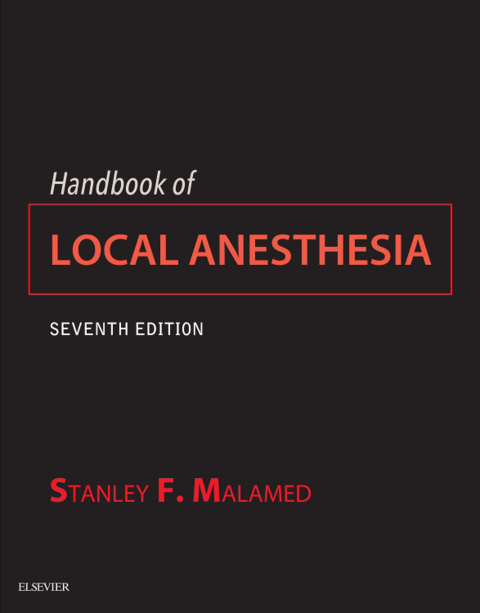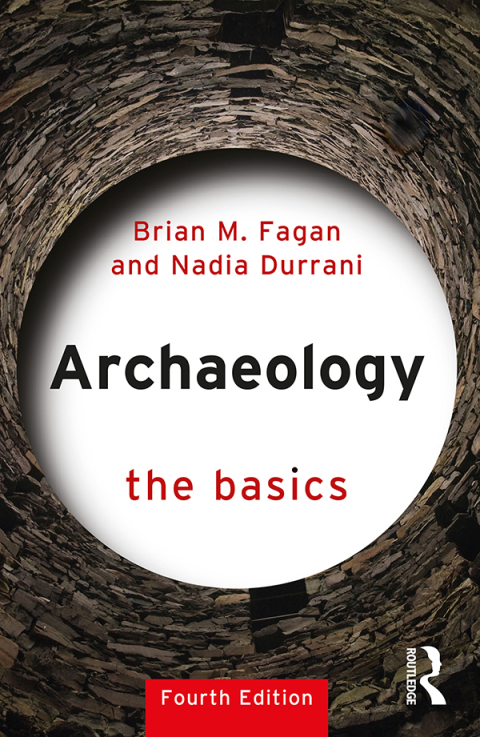Description
Efnisyfirlit
- Cover image
- Title page
- Table of Contents
- Copyright
- Preface
- Acknowledgments
- Dedication
- Contributors
- New to This Edition
- Part I. Drugs
- 1. Neurophysiology
- Desirable Properties of Local Anesthetics
- Fundamentals of Impulse Generation and Transmission
- Mode and Site of Action of Local Anesthetics
- Active Forms of Local Anesthetics
- Kinetics of Local Anesthetic Onset and Duration of Action
- 2. Pharmacology of Local Anesthetics
- Pharmacokinetics of Local Anesthetics
- Systemic Actions of Local Anesthetics
- 3. Pharmacology of Vasoconstrictors
- Chemical Structure
- Modes of Action
- Dilutions of Vasoconstrictors
- Pharmacology of Specific Agents
- Selection of a Vasoconstrictor
- 4. Clinical Action of Specific Agents
- Selection of a Local Anesthetic
- Duration
- Maximum Recommended Doses of Local Anesthetics
- Ester Local Anesthetics
- Amide Local Anesthetics
- Anesthetics for Topical Application
- Selection of a Local Anesthetic
- Part II. The Armamentarium
- 5. The Syringe
- Types of Syringes
- Care and Handling of Syringes
- Problems
- Recommendations
- 6. The Needle
- Types of Needle
- Anatomy of a Dental Needle
- Care and Handling of Needles
- Problems With Needles
- Recommendations
- 7. The Cartridge
- Components
- Cartridge Contents
- Care and Handling
- Problems
- Recommendations
- 8. Additional Armamentarium
- Topical Antiseptic
- Topical Anesthetic
- Applicator Sticks
- Cotton Gauze
- Hemostat
- Needle-Recapping Device
- 9. Preparation of the Armamentarium
- Breech-Loading, Metallic or Plastic, Cartridge-Type Syringe
- Placing an Additional Cartridge in a (Traditional) Syringe
- Self-Aspirating Syringe
- Ultra Safety Plus XL Safety Syringe
- Part III. Techniques of Regional Anesthesia in Dentistry
- 10. Physical and Psychological Evaluation
- Goals of Physical and Psychological Evaluation
- Physical Evaluation
- I. Circle Appropriate Answer: (Leave Blank If You Do Not Understand The Question.)
- II. Have You Experienced
- III. Do You Have Or Have You Had
- IV. Do You Have Or Have You Had
- V. Are You Taking
- VI. Women Only
- VII. All Patients
- Physical Examination
- Additional Evaluation Procedures
- Physical Status Classification System
- Drug-Drug Interactions and Contraindications
- Malignant Hyperthermia
- Atypical Plasma Cholinesterase
- Methemoglobinemia
- 11. Basic Injection Technique
- ◆ Step 1: Use a Sterilized Sharp Needle
- ◆ Step 2: Check the Flow of Local Anesthetic Solution
- ◆ Step 3: Determine Whether to Warm the Anesthetic Cartridge or Syringe
- ◆ Step 4: Position the Patient
- ◆ Step 5: Dry the Tissue
- ◆ Step 6: Apply Topical Antiseptic (Optional)
- ◆ Step 7A: Apply Topical Anesthetic
- ◆ Step 7B: Communicate With the Patient
- ◆ Step 8: Establish a Firm Hand Rest
- ◆ Step 9: Make the Tissue Taut
- ◆ Step 10: Keep the Syringe Out of the Patient’s Line of Sight
- ◆ Step 11A: Insert the Needle Into the Mucosa
- ◆ Step 11B: Watch and Communicate With the Patient
- ◆ Step 12: Inject Several Drops of Local Anesthetic Solution (Optional)
- ◆ Step 14: Deposit Several Drops of Local Anesthetic Before Touching the Periosteum
- ◆ Step 15: Aspirate
- ◆ Step 16A: Slowly Deposit the Local Anesthetic Solution
- ◆ Step 16B: Communicate With the Patient
- ◆ Step 17: Slowly Withdraw the Syringe
- ◆ Step 18: Observe the Patient
- ◆ Step 19: Record the Injection in the Patient’s Dental Chart
- 12. Anatomic Considerations
- Trigeminal Nerve
- Osteology: Maxilla
- Osteology: Mandible
- 13. Techniques of Maxillary Anesthesia
- Local Infiltration
- Field Block
- Nerve Block
- Discussion
- Maxillary Injection Techniques
- Teeth and Buccal Soft and Hard Tissues
- Palatal Anesthesia
- Precautions
- Summary
- 14. Techniques of Mandibular Anesthesia
- Inferior Alveolar Nerve Block
- Buccal Nerve Block
- Area Anesthetized
- Indication
- Mandibular Nerve Block: The Gow-Gates Technique
- Vazirani-Akinosi Closed-Mouth Mandibular Block
- Indications
- Mental Nerve Block
- Incisive Nerve Block
- Chapter15. Supplemental Injection Techniques
- Intraosseous Anesthesia
- Intrapulpal Injection
- Summary
- 16. Anesthetic Considerations in Dental Specialties
- Endodontics
- Pediatric Dentistry
- Periodontics
- Oral and Maxillofacial Surgery
- Fixed Prosthodontics
- Long-Duration Local Anesthesia
- Dental Hygiene
- Part IV. Complications, Legal Considerations, Questions, and the Future
- 17. Local Complications
- Needle Breakage
- Prolonged Anesthesia or Paresthesia
- Facial Nerve Paralysis
- Ocular Complications
- Trismus
- Soft Tissue Injury
- Hematoma
- Pain on Injection
- Burning on Injection
- Infection
- Edema
- Sloughing of Tissues
- Postanesthetic Intraoral Lesions
- 18. Systemic Complications
- Classification of Adverse Drug Reactions
- Overdose
- Allergy
- Consultation and Allergy Testing
- Dental Management in the Presence of Alleged Local Anesthetic Allergy
- Clinical Manifestations
- Time of Onset of Symptoms
- Signs and Symptoms
- Management
- Summary
- 19. Problems in Achieving Pain Control
- Maxillary Teeth
- Mandibular Teeth
- Pulpally Involved Teeth
- 20. Recent Advances in Local Anesthesia
- Computer-Controlled Local Anesthetic Delivery
- Articaine Hydrochloride
- Phentolamine Mesylate: The Local Anesthesia “Off” Switch
- Buffering (Alkalinizing) of Local Anesthetics: The Local Anesthetic “On” Switch
- Tetracaine and Oxymetazoline: Nasal Mist for Anesthesia of Maxillary Nonmolar Teeth
- 21. Future Trends in Pain Control
- Longer- and Ultra-Long-Acting Local Anesthetics
- Light-Activated, Light-Inactivated Local Anesthesia
- 22. Frequently Asked Questions
- Local Anesthetics
- Vasoconstrictors
- Syringes
- Needles
- Cartridges
- Techniques of Regional Anesthesia in Dentistry
- 23. Legal Considerations
- Contract Law
- Criminal Law
- Tort Law
- Health Insurance Portability and Accountability Act of 1996
- Legal Considerations Relating to Local Anesthesia Administration
- Conclusion
- Index






Reviews
There are no reviews yet.